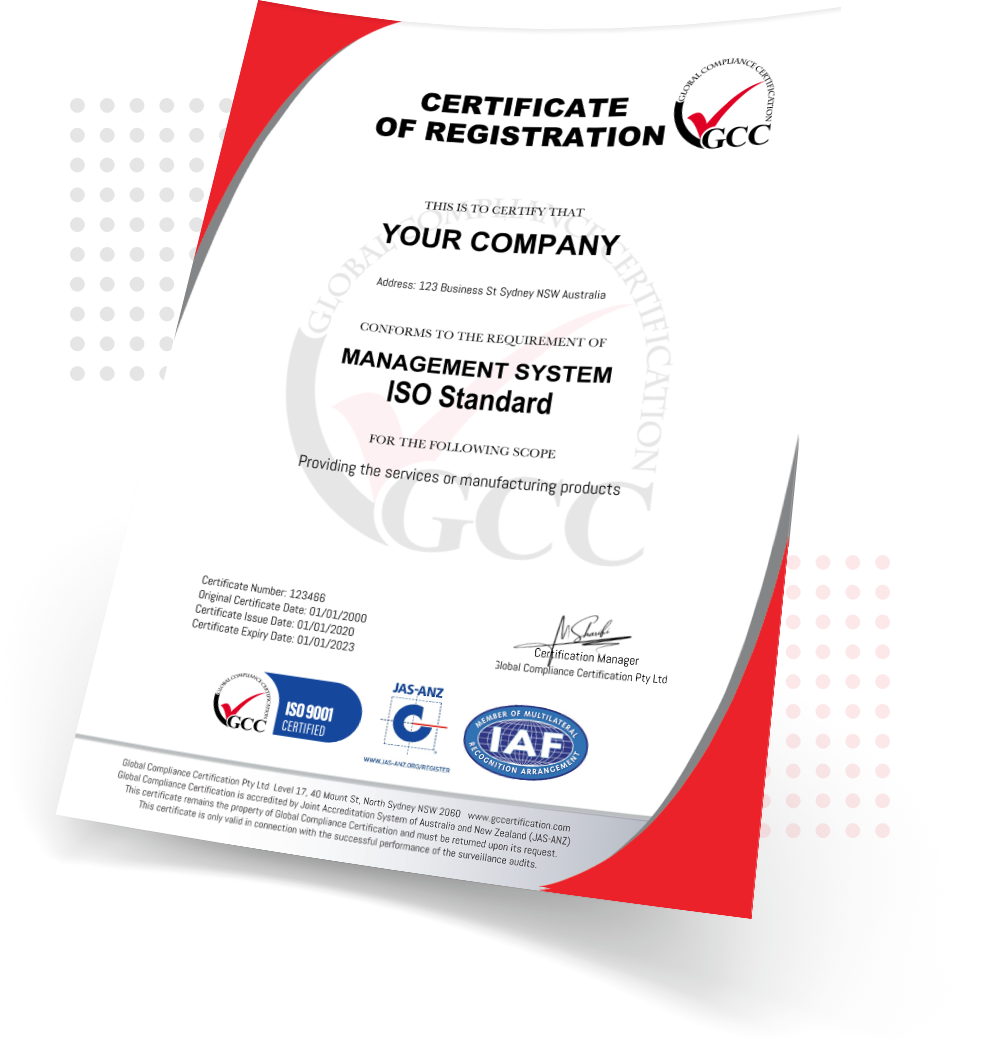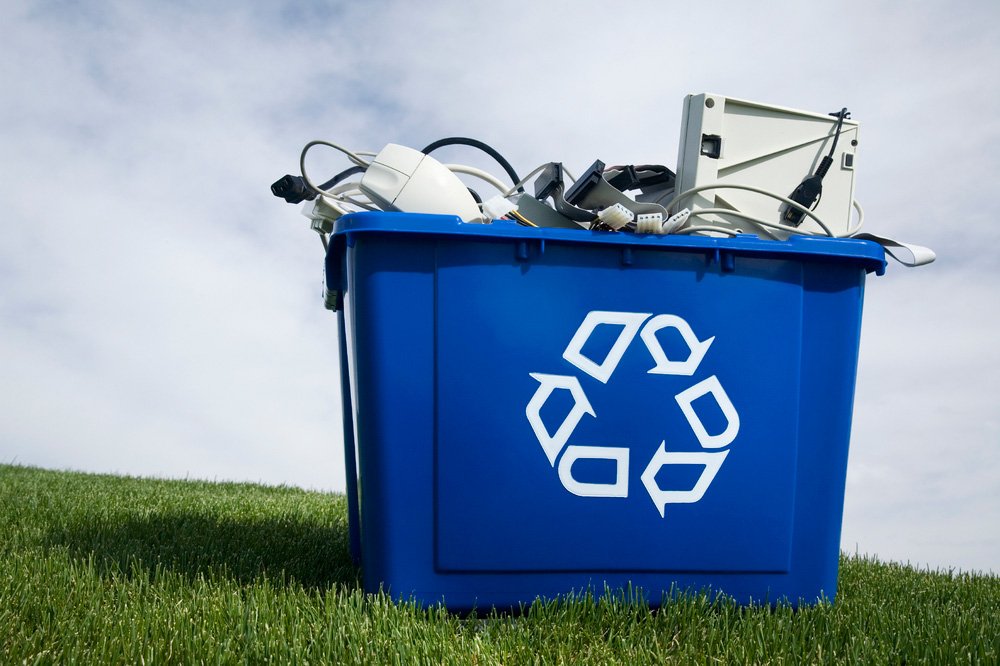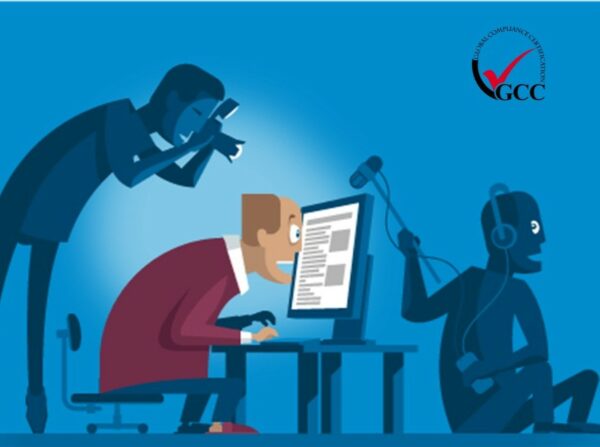
AS/NZS 5377 E-waste Management System
Provide safe and environmentally sound collection, storage, transport and treatment of E-waste
About AS/NZS 5377 E-Waste Management System
The AS/NZS 5377 standard was developed by the Australian Government’s Department of the Environment, and the New Zealand Ministry of Environment to provide a uniform approach to assessing e-waste management systems.
This Standard sets out principles and minimum requirements for the safe and environmentally sound collection, storage, transport and treatment of end-of-life electrical and electronic equipment in order to:
- Maximise re-use and material recovery
- Reduce or eliminate the amount of waste from this equipment going to final point of disposal operations such as landfill
- Safeguard worker health
- Minimise harm to the environment
The need for all organisations that are involved in e-waste recycling to be certified to AS/NZS 5377 arose from an operational review of the National Television and Computer Recycling Scheme (NTCRS), which was created to manage the ongoing stability of recycling systems as the volume of e-waste increases exponentially.
Quick Quote
Fill out the form below to find out more

Focus of AS/NZS 5377
- Provide guidance and minimum requirements for: Collection, Storage, Transport, Recycling Facilities, Resource Recovery, Disposal of End-of-Life Electrical and Electronic Equipment, Diverting it from Landfill
- Develop, Implement and Maintain Management Processes
- Give Confidence to Parties and Stakeholders when Benchmarking Performance
Benefits of AS/NZS 5377
- Provides a Framework to Implement an Effective E-Waste Management System
- Reduces the Hazards Associated with E-Waste Management
- Reduces the Risk of Non-Compliance with Legislation and Subsequent Costs or Prosecution
- Promotes E-Waste Management Best Practices
- Reinforces Good E-Waste Management Behaviours
- Improves your Brand Image and Demonstrates your Organisation’s Commitment to the Environment
- Increases your Access to New Customers and Business Partners
- Improves Managing your Environmental Risks, Now and in the Future
- Reduces Insurance Premiums, Waste Handling Costs, and Other Related Fees
- Attracts Investment, Enhances Brand Reputation and Removes Barriers to Trade
- Provides an Advantage over Competitors who are not Certified
Certification Process
Certification involves GCC assessing your organisation in order to ascertain that management systems meet the requirements of one or more recognised standards. Becoming certified to a nationally or internationally recognised standard is of great benefit to an organization. It improves overall performance, builds confidence within stakeholder groups and broadens the scope of new opportunity.
Application/ Contract
- Application for certification by client
- GCC will review and provide certification proposal
- Client accepts the agreement and return to GCC
- Audit dates will be booked
- GCC conducts Gap Analysis (optional)
Certification Audit/ Transfer
- Stage 1 Audit, The Audit team will assess documentation and readiness of management system for Stage 2 Audit
- Stage 2, Certification Audit, Audit team will assess implementation of system and will verify any issues outstanding from the Stage 1 Audit.
- Organisation will be recommended for Certification after review and positive decision by the independent GCC certification Authority,
- A Certificate will be issued
Maintaining certification
Surveillance Audits
Each issued certificate has a three-year life period. Upon certification, an audit program will be created for regular audits over the three-year period. These audits confirm company’s on-going compliance with specified requirements of the standard. At least one surveillance audit per year is required.
Read our policy for use of Certification Marks
Re-Certification
Re-Certification
The certification expires within 3 years and a re-certification Audit will be conducted prior to the expiry date to ensure that Management System is maintained.
Frequently Asked Questions
E-waste recycling rules refer to regulations and guidelines for properly disposing and recycling electronic waste, such as computers, televisions, cell phones and other electronics. The rules vary depending on the country and region, but the main goal is to reduce the environmental impact of e-waste and promote responsible disposal and recycling practices.
In 2011, the Australian government implemented the National Television and Computer Recycling Scheme (NTCRS) to ensure the proper disposal and recycling of electronic waste. This scheme allows households and small businesses to utilise collection and recycling services for free.
To participate, members of the public and small businesses can simply drop off their old television and computer products at designated collection points for e-waste recycling. These collectors are certified to AS/NZS 5377, and their services are made widely available — with approximately 98% of the Australian population having reasonable access to them.
By making it easier for people to dispose of e-waste properly, the NTCRS helps reduce the negative impact of such waste on the environment. This is an essential step towards achieving a more sustainable future for Australia. Head over to the NTCRS page for more information about this scheme.
The issue of e-waste is pressing in Australia due to the growing amount of electronic waste generated and the potential environmental and health hazards associated with its disposal. Electronic waste contains various toxic materials, including lead, mercury and cadmium, which can contaminate soil and water sources if not properly managed.
This issue can be attributed to the rapid pace of technological change and consumer electronics replacement, coupled with limited repair options.
The Australian government and various organisations are working to promote responsible e-waste management practices to mitigate its impact. It’s important to note that as per Australia’s Recycling and Waste Reduction Rules of 2021, e-waste recycling organisations and their facilities need to secure AS/NZS 5377 certification.
E-waste can have significant impacts on the environment if not properly managed. Some of the main environmental impacts include:
- Contamination of soil and water — Electronic waste contains toxic substances such as lead, mercury and other elements that can leach into the soil and groundwater, causing long-term environmental damage.
- Air pollution — The incineration of e-waste can release harmful pollutants into the air, contributing to air pollution and the degradation of air quality.
- Resource depletion — The production of new electronics requires the extraction and processing of finite natural resources, contributing to resource depletion and environmental exploitation.
The responsibility for the disposal of products when they become e-waste can vary depending on the jurisdiction and the product type. In general, the following parties may be responsible:
- Manufacturers — Some governments have introduced producer responsibility laws that require manufacturers to take responsibility for the disposal of their products at the end of life.
- Consumers — Consumers also play a role in properly disposing of e-waste by taking their old electronics to authorised recycling facilities or participating in e-waste collection events.
- Governments — Governments promote responsible e-waste management through legislation, funding and education programs.
- E-waste management companies — These companies collect, transport and process e-waste.
Several components in electronic waste are a concern due to their potential harm to the environment and human health. Some of the main components of concern include heavy metals, batteries, flame retardants and plastic.
E-waste is disposed of in Australia through a combination of methods, including:
- Recycling — The majority of e-waste in Australia is recycled through authorised e-waste recycling facilities, which extract valuable materials and properly manage toxic substances.
- Landfilling — Some e-waste is still landfilled, although this is becoming less common due to environmental and health concerns.
- Reuse — Some electronics can be refurbished and reused, reducing the amount of e-waste generated.
- Export — Although it is illegal under the Basel Convention, a small amount of e-waste may still be exported from Australia to developing countries.
By working with GCC, you can be confident that your organisation is meeting the highest e-waste management standards and positively impacting the environment. In addition to the AS/NZS 5377 e-waste management certification, GCC also offers certification services for ISO 9001, ISO 45001, ISO 27001, ISO 14001 and others, ensuring that your organisation complies with a range of industry standards.
If you have any questions or wish to request a quote, please don’t hesitate to contact us. We support your journey towards a more sustainable and responsible future.
When e-waste is disposed of correctly, it goes through a process of collection, transportation and processing at authorised e-waste recycling facilities. The e-waste is then sorted, dismantled and processed to extract valuable materials and properly manage hazardous substances.
E-waste can affect the economy in several ways, both positively and negatively. Some of the main ways e-waste affects the economy are:
- Job creation — The electronic waste recycling industry can create jobs in areas such as collection, transportation, sorting and processing.
- Resource recovery — E-waste contains valuable materials such as gold, silver, and copper that can be recovered through recycling. This supports the economy by conserving natural resources and reducing the need for new mining.
- Environmental costs — Improperly managed e-waste can result in environmental harm, leading to costs associated with cleaning up contaminated sites and addressing other environmental impacts.
GCC Training
Empower your team with our self-paced efficient training.








